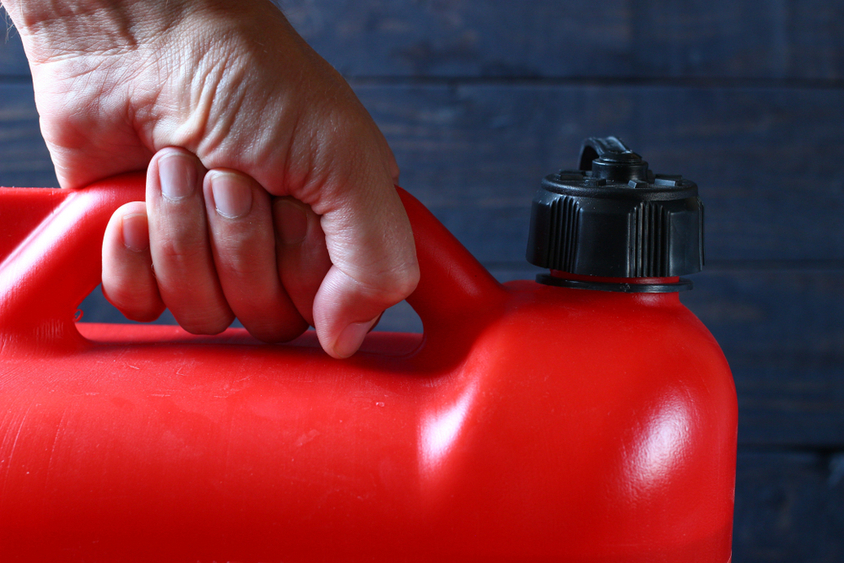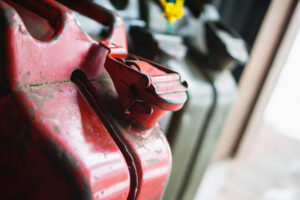What is the best way to store fuel?
Written by: Simon Pavey, Last updated:24th February 2022

During the recent fuel supply crisis, many drivers took to buying excess amounts of fuel and storing it for future use. There are, however, legal and safety concerns that drivers must be aware of when doing so. Additionally, fuel doesn’t last forever, so how long exactly are we able to store petrol or diesel?
What is the expiry date of fuel?
Although produced from crude oil, an extremely old substance, neither petrol or diesel last very long. Therefore, you should only store fuel if you know it is going to be used – otherwise it will most certainly go to waste!
When stored in a sealed container at 20 degrees, petrol should last around 6 months. It will only last 3 months if stored at 30 degrees.
Diesel tends to last a little bit longer in the same conditions. Estimates suggest that you can store diesel for up to a year before it goes off.
Can you leave fuel in your tank for extended periods?
Drivers might refrain from using a certain vehicle for months, and if there is any fuel left in the tank during this time, it will be losing quality. It is recommended that you drain the tank if you have had fuel sat in your tank for 6 months.
Alternatively, you could use a fuel stabiliser. This liquid is used to slow down the oxidation process that causes your fuel to become unusable. Manufacturers of fuel stabilisers claim that such products can extend the life of fuel to up to two years, although tests have shown mixed results.
Once your fuel has reached the end of its shelf life, you should avoid driving with it. Old petrol can cause deposits that clog up the mechanisms in your engine and cause serious damage. Old diesel can also block the fuel injection system. The damages caused by driving with old fuel would be similar if you tried driving your vehicle with the wrong type of fuel!
What is the best way to store fuel?
Petrol and diesel fuels should be stored in a plastic or metal container with a tight-fitting cap – such containers are available that are designed specifically for this purpose. A tight-fitting cap is vital as it will slow down the oxidation process as well as ensure there are no dangerous spillages.
Of course, you should keep in mind that both petrol and diesel are flammable liquids, making them a serious hazard. If avoidable, do not store fuel in your home or main building of operation. A garage or shed is desirable if it is well ventilated and meets the necessary temperature requirements.
How much fuel can you store at home?
Depending on the container used, you are allowed to keep 30 litres of petrol on your premises. If you wish to store more than this you must notify your local Petroleum Enforcement Authority. Having done so, you are permitted to store up to 275 litres of petrol.
However, there is no legal limit on how much diesel you are allowed to store.
How can Fuel Card Services help?
Just as important as properly storing fuel is ensuring that you’re paying the best possible price for it. That’s where a fuel card come in. Businesses can use them to get great deals on petrol, diesel, and even electric.
If you think your business would benefit from lowering your fuel costs, get in touch with our experts today. As fuel and energy prices rise, you could negate a huge amount of strain on your operations by making sure you’re getting the best possible deals.
back



